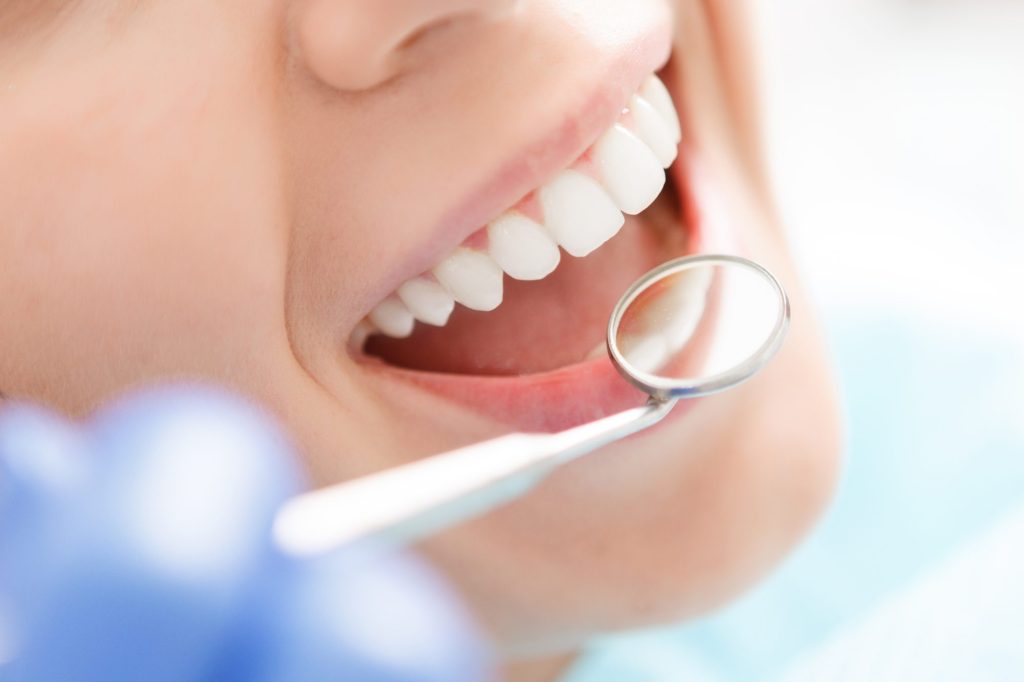Who doesn’t want a bright, shiny smile? But good oral health goes beyond just looks. It is a symbol of good health and an integral part of your overall wellness. Keeping your teeth and gums healthy helps prevent tooth decay, gum disease, and bad breath. And that’s not all. Recent studies have shown a link between poor oral health and other chronic diseases like heart disease, stroke, and diabetes. In this blog, we will dive deeper into what oral health is and why it is critical to maintaining a healthy lifestyle. We will also discuss the steps you can take to maintain good oral hygiene, the benefits of doing so, and the signs that warn you of poor oral health. Join us and discover the significance of oral health beyond just a pretty smile.
What is Oral Health?
Oral health refers to the overall health of the teeth, gums, and the entire oral-facial system that enables us to smile, speak, and chew. Poor oral health is not limited to cavities and gum disease but is associated with other chronic diseases, such as diabetes and heart disease. Women have unique oral health concerns because of the changes in hormones during pregnancy and menopause.
Regular brushing, flossing, and dentist visits are essential to maintaining good oral health to prevent diseases in the mouth and body. Factors like an unhealthy diet, tobacco and alcohol use, and poor dental hygiene practices can increase the risk of oral diseases. Hence, maintaining oral health is not just a matter of having a pretty smile, but it is also a critical aspect of maintaining overall health and well-being.
Steps to Maintaining Good Oral Health
Maintaining good oral hygiene is essential for overall health and well-being beyond just having a pretty smile. You can maintain good oral health by following some simple steps. Brushing your teeth twice a day with fluoride toothpaste and flossing at least once a day is essential. Having your teeth cleaned professionally every six months can improve your oral health. Avoid using tobacco products and follow a balanced diet with high fiber, low fat, and low sugar. Eating plenty of fruits and vegetables can help prevent cavities and gum disease. Limiting sugary snacks and drinks, including condiments and canned fruit, can also prevent tooth decay. If you want to learn more tips on preventing oral health problems, consult your dentist or dental hygienist.
Benefits of Good Oral Hygiene
Having good oral hygiene is integral to maintaining healthy teeth and gums, fresher breath, and a beautiful smile. Additionally, it can lead to a decrease in the need for dental work and even lower the risk of certain health concerns, such as heart disease, stroke, and diabetes. To ensure good oral hygiene, it is essential to practice behaviors like regularly brushing teeth with fluoride toothpaste and a soft-bristled toothbrush, flossing once daily, and avoiding tobacco products. Educational programs are also necessary to raise awareness and encourage healthy habits like reduced sucrose intake, limiting acidic beverage consumption, and maintaining daily oral hygiene practices. Good oral hygiene can provide numerous benefits, including protection from tooth decay and bad breath and an enhanced sense of self-confidence and appearance, making it a crucial part of overall wellness.
The Link Between Oral and Overall Health
Our oral health is inextricably linked to overall health, and maintaining good oral hygiene is crucial for both. Recent research has shown that declining oral health can lead to systemic conditions, including diabetes, heart disease, pneumonia, and even stroke. Oral diseases such as cavities, gum disease, and oral cancer can also impact our oral-facial system, leading to lost productivity and school hours. Neglecting oral health can also cause bacteria in the mouth to spread into the bloodstream, leading to infective endocarditis, a life-threatening condition that affects the heart. Preventive measures such as antibiotics before dental procedures can help reduce the risk of infective endocarditis. Thus, taking care of our oral health is not only about keeping a pretty smile, but also about preventing serious health complications.
Signs of Poor Oral Health
The state of your oral health is a reflection of the overall health of your body. Poor oral hygiene can lead to various signs of poor oral health such as gingivitis (red, swollen, and bleeding gums), tooth decay, chronic bad breath, loose teeth, gum recession, and mouth sores that don’t go away. Neglecting these signs can impact not just your teeth and gums but also the entire body. Studies have shown that poor oral health can lead to systemic diseases such as cardiovascular disease, bacterial pneumonia, low birth weight, and diabetes complications. Infections such as infective endocarditis can also arise as the bacteria from the oral cavity spread to other parts of the body. It is increasingly important to make regular dental checkups and a consistent oral hygiene routine a priority in maintaining overall health.
Conclusion
In conclusion, good oral health is essential, not just for a pretty smile but for overall health and well-being. It is critical to keep your teeth and gums healthy and clean to steer clear of gum diseases, cavities, and other dental problems. In addition to that, good oral hygiene prevents bacterial infections that can affect the heart and the rest of the body. Neglecting your oral health can lead to severe consequences, such as tooth loss and other chronic health issues. Therefore, maintaining good oral hygiene should be an integral part of your overall healthcare routine. To learn more about the benefits of good oral hygiene and how it affects overall health, schedule an appointment with South Dayton Smiles today.

 Meet Dr. Botti
Meet Dr. Botti
 Meet Dr. Scranton
Meet Dr. Scranton
 Our Team
Our Team
 Patient Forms
Patient Forms Online Bill Pay
Online Bill Pay Benefit Program
Benefit Program Your First Visit
Your First Visit